List of members
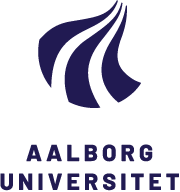
Aalborg University – Faculty of Social Sciences and Humanities
Our focus at The Faculty of Social Sciences and Humanities is on major societal challenges, public services and innovation, growth and jobs, and cultural and societal dynamics. With this focus, we contribute to creating good conditions for our society to navigate and make decisions.
Scholars at The Faculty of Social Sciences and Humanities disseminate their expert knowledge and qualify the public debate on current issues relating to society, nationally and internationally. The climate crisis, integration problems, poor well-being among children and young people, pressure on the healthcare system, digital transformation and other complex challenges place new demands on both basic research and research with an application-oriented aim.
The faculty's distinctive features are basic and applied research of a high international quality within the social sciences and humanities as well as the research intersection between the two academic areas. Our mission-oriented and interdisciplinary approach enables us to create breakthroughs, ideas and method tools that can help ensure a sustainable (global) society and learning in the 21st century.
Contact info
Søren Kristiansen
Vice dean of The Faculty of Social Sciences and Humanities
Aalborg University
Martine Kaalund Duun
Strategic Advisor
Dean's Office

Aarhus university – Faculty of Arts
The Faculty of Arts was established in 2011 when the former Faculty of Humanities, Faculty of Theology and the Danish School of Education were merged. Arts is now the largest faculty for research and teaching on cultural and social practices in Northern Europe.
Arts is home to a wide range of disciplines and interdisciplinarities. On this basis, we seek to address the most urgent challenges facing society today. A commitment to interact with society and seek solutions to pressing social questions is balanced with an emphasis on contributing to basic research.
The Faculty of Arts employs around 750 full-time members of academic staff and has around 15,000 students. Arts has around 300 enrolled PhD students.
Contact info
Johnny Laursen, Dean of the Faculty of Arts
Lotte Holm, Advisor for Research and Talent Development
Faculty of Arts, Dean's Office
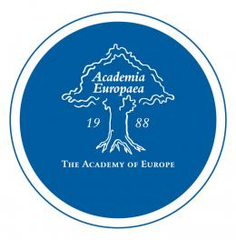
Academia Europaea
The Academia Europaea is a functioning European Academy of Humanities, Letters and Sciences, composed of individual members. Membership is by invitation.
Invitations are made only after peer group nomination, scrutiny and confirmation as to the scholarship and eminence of the individual in their chosen field. Election is confirmed by the Council of the Academia.
Members are drawn from across the whole European continent, not only western Europe. Members also include European scholars who are resident in other regions of the world. Current membership stands at around 4,000. Amongst them are seventy-two Nobel Laureates, several of whom were elected to the Academia before they received the prize.
Contact info
Dr David Coates
Executive Secretary
Academia Europaea
Room 251, 2nd floor
Senate House
University of London
Malet Street
London
WC1E 7HU
UNITED KINGDOM
Tel: + 44 (0) 207 862 5784
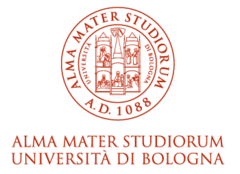
Alma Mater Studiorum – Università di Bologna
Alma Mater Studiorum – Università di Bologna is the oldest university in the Western world. Based in five campuses (Bologna, Cesena, Forlì, Ravenna, Rimini), with a branch in Buenos Aires. The university is in the top 200 most prestigious international University rankings and considered the leading university in Europe for student mobility (Erasmus+).
As a comprehensive research university Alma Mater Studiorum – Università di Bologna invests in the multidisciplinary cross-cultural approach and in the inseparable connection between research and teaching. The University of Bologna is an active member of the most relevant networks in the fields of Cultural Heritage and Cultural and Creative Industries at European, national and regional level.
The university is also member of other major thematic networks in the field of SSH: European School of Innovation “ESSI”, "Forum Euroméditerranéen des Instituts de Sciences Economiques" (FEMISE) and the European Regions for Competitive and Sustainable Tourism (NECSTOUR). It is also member of the Guild of European Research-intensive Universities, the European University Association, the Una Europa alliance and EARMA.
Alma Mater Studiorum – Università di Bologna ranks first among Italian HEIs and 3rd among European HEIs for competitive research funded in Horizon 2020, Societal Challenge 6; Europe in a changing world – Inclusive, innovative and reflective societies. As a comprehensive university, it has made the most of all its disciplinary fields by mobilizing researchers across disciplinary areas.
Contact info
Giulio Ecchia
Full Professor
Department of Economics
Alma Mater Studiorum – Università di Bologna
+39 051 20 9 2688

Antwerp University
The University of Antwerp is a young and dynamic university, which through its free and innovative research, student-centred academic teaching and targeted service to society, aims to make a valuable impact on the development, dissemination and use of scientific knowledge.
By doing so, UAntwerp continues to strengthen its commitment to the further development of a sustainable world and a democratic and inclusive society founded on human rights. ‘Let’s shape the future' is therefore the university's – logical – slogan.
Students not only become experts in their fields, but also critical and independent global citizens who are empowered to find their own way. For the university, they are co-creating partners.
Researchers are given time and space to engage in creative and groundbreaking research which aims for international scientific and societal impact. The university focusses on its strengths, with continued attention to global research and embeddedness within teaching.
The University of Antwerp promotes public debate and visibly embodies its values through unifying science communication and targeted networking, both regionally and internationally. Via YUFE, the university is helping to build the foundations of a European university.
The development of knowledge and expertise comes about in partnership with government entities, private partners and citizens, with a focus on applications, either with or without a profit motive. In doing so, the university actively seeks opportunities for valorising knowledge in a sustainable and socially valuable way.
Contact info
Raf Guns
Domain coordinator - Senior researcher
RIVA - Research, Innovation & Valorisation Antwerp / ECOOM
Research Affairs

Athéna Alliance
The Athéna Alliance (Alliance thématique nationale des sciences humaines et sociales) was founded in 2010 by agreement between research organisations and universities. The Athena alliance brings together major research establishments in human and social sciences in France, and works with numerous partners: ministries, agencies, foundations, etc.
The Athéna Alliance is a forum for strategic consultation and cooperation between universities and research organizations in the field of humanities and social sciences. It promotes the shared positions emerging from this consultation and joint reflection to decision-making and research funding bodies, particularly at a national and European level.
Contact info
Francoise Thibault
Alliance Athéna
54 boulevard Raspail
75006 Paris
France

Charles University
Established in 1348, Charles University holds the distinction of being among the world's most ancient institutions of higher education. Despite its age, it stands out as a contemporary, vibrant, and esteemed academic institution.
As the Czech Republic's largest and most prestigious university, it also consistently tops local institutions in international academic rankings. The university comprises 17 faculties, alongside 3 institutes and 6 additional centres dedicated to teaching, research and development.
Maintaining and enhancing its respected reputation as a research-focused institution remains at the forefront of Charles University's mission. It channels substantial effort towards cultivating international collaborations and research pursuits.
The university is proud of its many exemplary research teams that actively engage with global research establishments. It maintains robust partnerships with a diverse array of world-class universities and is a key player in the 4EU+ university alliance. With an objective to foster an international milieu within its campuses, the university extends numerous opportunities to researchers worldwide.
Social sciences and humanities provide critical understanding of the complex, interconnected social and cultural aspects of our world, enabling us to address global challenges more effectively. By studying social sciences and humanities, students gain a deeper comprehension of human behaviour, societies, and cultures, promoting empathy, critical thinking, and effective communication skills. At Charles University, these fields are strongly represented and are key to shaping insightful, responsible, and adaptable graduates ready to contribute positively to the global community.
Charles University employs over 8,600 personnel, with close to 5,000 engaged in academia and research. More than 50,000 students — approximately one-sixth of all students in the Czech Republic — are enrolled in the institution's more than 300 accredited degree programmes, which encompass over 870 unique courses.
Contact info
Ondřej Daniel
European Centre, Department of Science and Research, Rectorate
Charles University
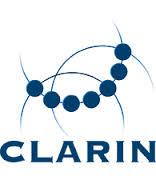
CLARIN - Common Language Resources and Technology Infrastructure
CLARIN is the Common Language Resources and Technology Infrastructure, which aims to provide easy and sustainable access for scholars in the humanities and social sciences to digital language data (in written, spoken, video or multimodal form), and advanced tools to discover, explore, exploit, annotate, analyse or combine them, wherever they are located.
CLARIN is shaped as a networked federation of language data repositories, service centres and centres of expertise, with single sign-on access for all members of the academic community in all participating countries. Interoperability of tools and data from different data and service centres allows for data collections to be combined and for tools from different sources to be chained to perform complex operations to support researchers in their work.
Contact info
Darja Fišer
Executive Director
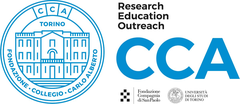
Collegio Carlo Alberto – CCA
Collegio Carlo Alberto (CCA) is a foundation created in 2004 as a joint initiative of the Compagnia di San Paolo Bank Foundation and the University of Torino.
CCA’s mission is to foster academic research and education in the social sciences, through a threefold action plan:
(i) the production of first-rate research in Economics, Public Policy, Social Sciences and Law;
(ii) the provision of top-level undergraduate and graduate education in the above disciplines; and
(iii) the contribution to the public policy debate through a wide programme of outreach activities.
CCA Faculty Fellows contribute to a dynamic research environment involving the residential faculty of the University of Torino, the faculty hired on the international academic job market, senior research fellows and visiting scholars.
Together they build the CCA scientific community consisting of a total of more than 60 researchers.
Contact info
Claudia Villosio
Research Manager
Collegio Carlo Alberto
Piazza Arbarello 8
10124 TORINO
Italy
Tel: + 39 011 15630823
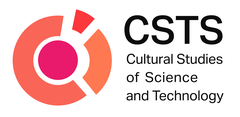
Cultural Studies of Science and Technology Group – CSTS
The Cultural Studies of Science and Technology Group (CSTS) is part of the Transdisciplinarity Lab, at the Department of Environmental Systems Science, ETH Zurich (Switzerland). We are an interdisciplinary group investigating, designing and implementing interdisciplinary and transdisciplinary research processes with a transformative potential for societal impact.
The group is part of a dynamic community working in the intersection of science and technology studies (STS) and combines a diverse range of methods and theories from anthropology, sociology, political science, cognitive science, and philosophy of science, together with inter- and transdisciplinary methods and tools. We take a cultural approach to investigate collaborative research practices and their context.
We aim to understand the underlying systems of meaning that are created by and guide research practices, science policies and funding schemes. The study of collaborative practices provides important opportunities to redefine and to reinvent methods and conceptual frameworks in evaluating research. It can thus inform policy and funding. We consider the perspectives of a variety of actors that are affected by and in turn affect research practices and policies, by studying the complex relationships between research and society, and between different cultures of research.
Contact info
PD Dr Bianca Vienni-Baptista (Group Leader)
Transdisciplinarity Lab (TdLab) – D-USYS
ETH Zürich
Universitätstrasse 16 - CHN K76.2, 8092, Zürich
T: +41 44 632 64 22